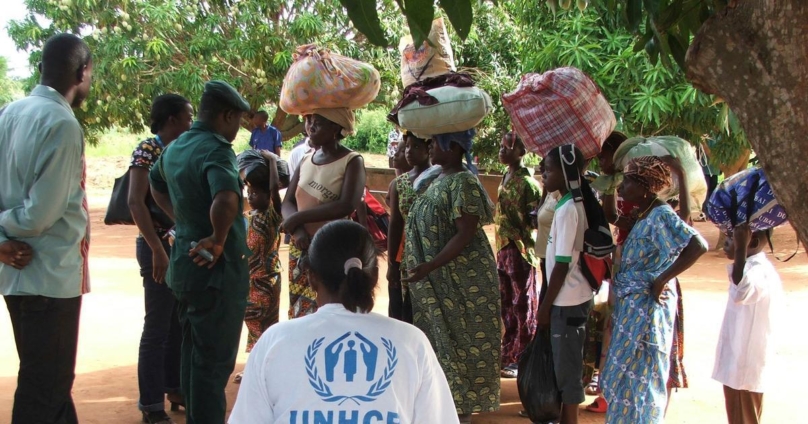Authorities in Ghana have heightened border surveillance after hundreds of Ivorians began entering the country ahead of Ivory Coast’s tense presidential election scheduled for October 25, 2025.
The movement, which officials estimate has exceeded 1,500 entries, is believed to be driven by anxiety over potential political instability. Many are seeking temporary refuge from possible post-election violence as President Alassane Ouattara, 83, makes another bid for office—likely his last.
During an inspection at Elubo, Western Regional Minister Joseph Nelson instructed immigration officers to remain vigilant, warning that criminal groups could take advantage of the situation. He emphasized the need for coordinated monitoring as more people are expected to cross in the coming days.
At the Elubo Immigration Command, Deputy Commissioner Joshua Krakue said officers are facing challenges distinguishing between regular travellers and those seeking protection. Most arrivals are described as calm and orderly, with individuals quietly moving across the border rather than large crowds in panic.
Authorities believe the current inflow could grow as election day nears. Ghana’s security agencies have therefore been placed on standby, balancing humanitarian obligations with national safety concerns.
Reflective Opinion
The situation unfolding at Ghana’s western frontier is a vivid reminder of how interconnected West Africa’s democracies truly are. Political tension in one state often ripples across borders, forcing neighboring nations to confront humanitarian and security dilemmas simultaneously.
Ghana’s proactive stance—monitoring borders without turning away potential asylum seekers—reflects a maturity that other states in the region can emulate. Yet, it also exposes how fragile regional stability remains, where electoral contests can prompt cross-border displacement before a single vote is cast.
In the long run, the region’s peace will depend not only on fair elections but also on stronger institutions that reassure citizens they are safe at home, regardless of who wins power. Until then, borders like Elubo will continue to bear the weight of political mistrust and human fear.

